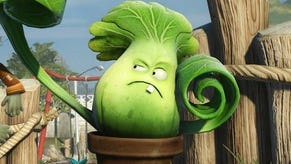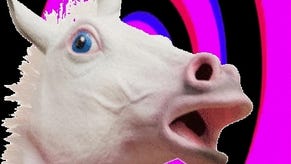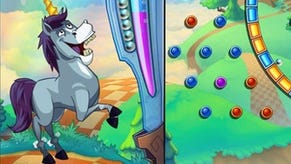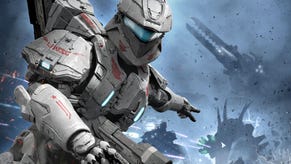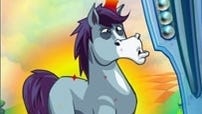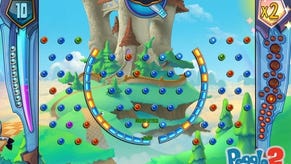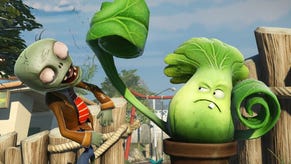Peggle 2 review
Extreme fever?
Got any ideas as to how you might improve Peggle? Neither has PopCap, by the looks of it. Peggle 2 is the most straightforward kind of sequel imaginable - it's more Peggle. Quite a lot more, actually. There are 60 levels, 60 mission-type things called trials, multiplayer, and four new masters, each with their own special power. Otherwise, it's the same ball-bouncing, point-scoring charm offensive you might have expected. Is that such a bad thing?
Perhaps it's a mild disappointment if you were hoping for some kind of evolution, but at least the whole enterprise hasn't been broken on the wheel of microtransactions. Despite a cart icon on the start screen that promises a shop of some manner will be coming soon, the flow of play is entirely without grind across the full length of the campaign and it's hard to see - beyond multiplayer costumes, perhaps, or new modes and level packs - where the sort of stuff you'll be paying for will fit in.
If you're new to Peggle, the basics are simple and intoxicating. PopCap's riffing on Pachinko: you fire a ball bearing from a pivoting turret at the top of the screen, and as it falls it bounces between a series of brightly-coloured pegs. Your basic task is to hit all the orange pegs scattered among the blue pegs before you run out of balls.
Your real objective, however, is to look stylish while you do it. This is a dynamic battlefield where your own actions ensure that you can never make exactly the same shot twice. Make the most of it! Score trick shots by bouncing off walls or bouncing from orange to orange across a great, yawning distance. Score extra balls by landing in the roving pot at the bottom of the screen rather than plummeting into the abyss. Score huge boosts by dropping into a high-value bucket at the end of the round as fireworks go off and rainbows soar across the sky. Score, score, score, amidst a symphony of ascending scales.
So what's changed? Well, the Xbox One controls are pretty nice, for starters: you can squeeze a trigger to move your turret slowly and precisely, or even use the d-pad to nudge your aim along in tiny increments for the really important moments.
Then there are the new Peggle Masters, whose powers are activated by hitting green pegs. Bjorn's back to remind you how to play the game, and with him comes his super guide that allows you to see where your first bounce is going to land. After that, meet Jeffrey, a Lebowski-quoting mountain troll who can conjure a massive stone boulder that chews through pegs as it falls. This is a complicated case. Lotta ins, lotta outs. Berg's up next, a charmingly moronic yeti whose deep freeze coats the screen in ice and sends any pegs you hit sliding around in potentially useful ways. Gnorman, a steampunk gnome, brings an uber volt move that electrifies the ball, lighting up three pegs for every one you actually strike, and finally there's Luna - a ghostly six-year-old who can turn the blue pegs translucent, meaning you can still score as you move through them but they won't impede you on your way to the oranges.
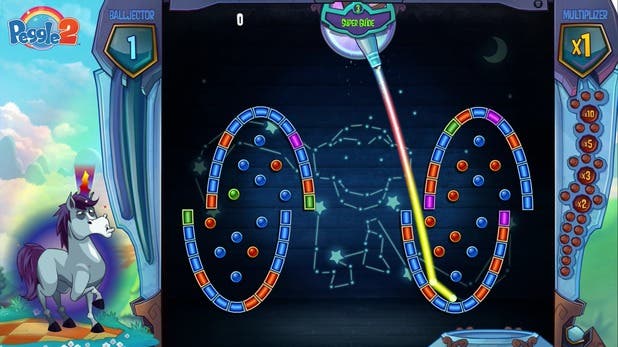
Berg is the star of the show. His animation is glorious - that slackjawed gawp of his that extends as your final score ratchets up is a truly beautiful piece of work - and with deep freeze you get a fleeting glimpse of the game Peggle 2 could have been if the designers had been a little more ambitious. Combined with new screen furniture that includes pinball staples like mushroom bumpers, magnetic doo-dads and moving platforms, the ability to smash pegs right across the playing field, lighting them up as they go, makes the whole thing more chaotic and exciting, like curling crossed with bar billiards. Three more powers of this quality and you could have had The Peggle Variations on your hands. Instead, Luna, Jeffrey and Gnorman are all charming and interesting to learn - Luna in particular will reward skilled players - but they don't make you rethink the game in fundamental ways. They feel like missed opportunities.
And they often come to life in the trials more than the standard levels, in fact. Along with Berg, these are another of Peggle 2's most exciting moments: 60 punchy little puzzle scenarios that sit alongside the main campaign. One might see you trying to beat a specific points target while your Peggle master's power is on full-time; another might pit you against a fleet of really fast-moving pegs. They're matched in the normal game with new optional objectives, three per level. Clear all the blue pegs as well as the orange, say, or finish a game with five balls left. Replayability was never a problem with Peggle, but these are nice additions.
As is online multiplayer. So far the only option I can see is Peg Party, which debuted in the Xbox Live Arcade and PlayStation Network versions on previous consoles, but it's still brilliant fun: four players plugging away on separate boards comparing scores at the end of each round. Costumes unlocked in the campaign allow your masters to dress up as babies or bank managers or dozens of other silly things, and while the UI suggests more modes may be forthcoming - perhaps from that shop - Peg Party's good enough on its own to keep you busy.
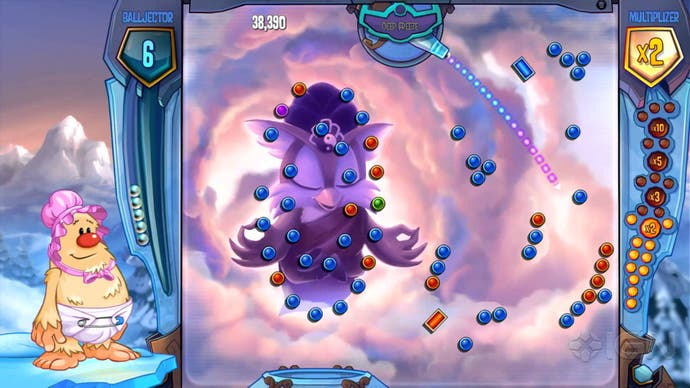
Beyond that, Peggle 2's other tweaks tend to be rather mixed. The art hasn't changed very much, but to my eye at least it's lost a little of its strange charm. The first Peggle has a graphical style that's actually quietly weird. There's a sort of rustic smokiness to it, as if the backdrops are tobacco-stained murals from an ancient - and rather psychotic - dive bar in an old mining town somewhere. Peggle 2's backdrops are just colourful cartoon fantasy lands, though, and they're overlaid with character designs that could have been plucked from any number of the late 90s Nickelodeon cartoons that swam around in the wake of Ren & Stimpy, seeking to be edgy but - y'know - not as edgy as anything John K might have come up with because people thought that was all a bit weird. This is hardly a major league punch in the nuts, but a certain amount of the game's richness is missing due to this subtle shift towards the middle ground.
Changes to the music are more obviously hard to understand. Peggle always used to greet each victory with Beethoven's Ode to Joy. Now, after Bjorn, each master gets their own orchestral outro, from Grieg's In the Hall of the Mountain King to Tchaikovsy's 1812 overture. Heaven knows I'm never one to attack Grieg without a good reason, but when you're emotionally prepared to hear Ode to Joy, it's difficult to make do with anything else. Peggle is Ode to Joy, and besides, there's a simple principle in life that you deviate from at your peril. Ask yourself: was it in Die Hard? If it was, you probably want to leave it as it is. (And make fists with your toes.)
Got any ideas as to how you might improve Peggle? Neither has PopCap, by the looks of it
Victory music, minor art style shifts: these are pedantic issues, and I only bring them up because PopCap is a pedantic developer, well aware that small things sometimes matter more than they should. Just look at Xbox One's auto-record function, tuned to psychic perfection in Peggle 2. It must be counting the number of bounces each ball makes amongst myriad other variables. Regardless of how the machine actually works its strange magic, whenever I had a good run of things - keeping the ball in play for ages, landing in the 100,000 bucket at the end of a round, or zipping along a sinuous arc of tiles and racking up massive points as I went - no sooner had I thought, I wish I'd recorded that, than a little pop-up appeared at the bottom of the screen and told me that, yes, I did record that.
That pedantry still lives in a few places, then, but are they the very best places? They would have been more welcome ironing out the annoying frame-rate issue that very occasionally crops up at exactly the same time you fire the ball, or fixing the small things in Bjorn's new design that make him look like a leering idiot. Peggle 2 is still a wonderful game, but to a super-fan there are too many things that feel miscalibrated. In a way, that's more damaging than the suggestion PopCap isn't sure what else to do with Peggle: it suggests PopCap needs to rediscover itself.



